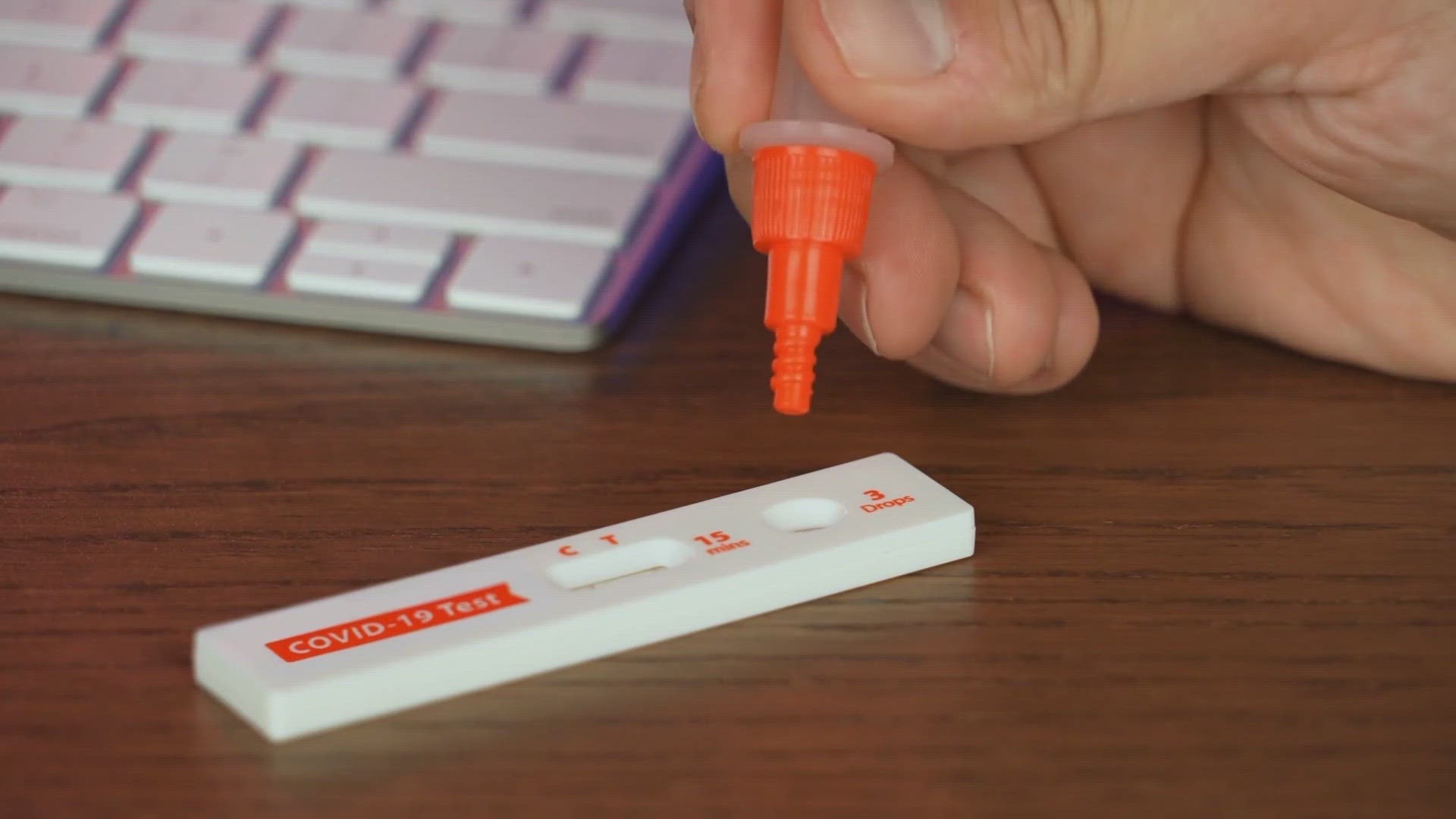SAN ANTONIO — COVID cases are once again on the rise in south Texas, as well as across the country.
Many of you may have not tested yourselves at home in quite some time. In tonight's edition of Verify, we clear up a COVID test kit misconception.
Three COVID variants are floating around the world right now. But you may have an at-home test kit that was developed before these variants.
THE QUESTION
Is it true that at-home COVID antigen test kits can't detect the latest variants?
THE SOURCES
- Dr. Jason Bowling, an infectious disease specialist with University Health, and Professor of Infectious Diseases at UT Health San Antonio
- Dr. Nathaniel Hafter, an assistant professor of molecular medicine at the University of Massachusetts Chan Medical School
THE ANSWER
FALSE
WHAT WE FOUND
Dr. Bowling told us, "The good news is the home tests still work well for the circulating main circulating variants right now. The EG.5, FL.1.1.1, that l filled that 1.5.1. Those are XBB variants and they are detected by the home antigen test."
Dr. Bowling says that when we talk about the different variants, the mutations have to do with the spike protein.
"The home test targets nucleocapsid antigen, so a different area of the virus," Bowling added. "And so that's why a home test can still work even when there's a lot of mutations in the spike protein because it operates on a different target."
In a recent article in the publication Verywellhealth, Dr. Hafter was quoted saying that "for rapid tests, many of them are designed to detect the N protein and that has not been mutating nearly as much, if at all. We don't have any reason to think that our tests would not be able to detect SARS-CoV-2."
So no, the claim is false, and at-home COVID antigen test kits CAN detect the latest variants.
Dr. Bowling added that you need to make sure your COVID test kit has not expired, and that you need to use the tests properly by testing yourself a second time after a negative test 48 hours later.

